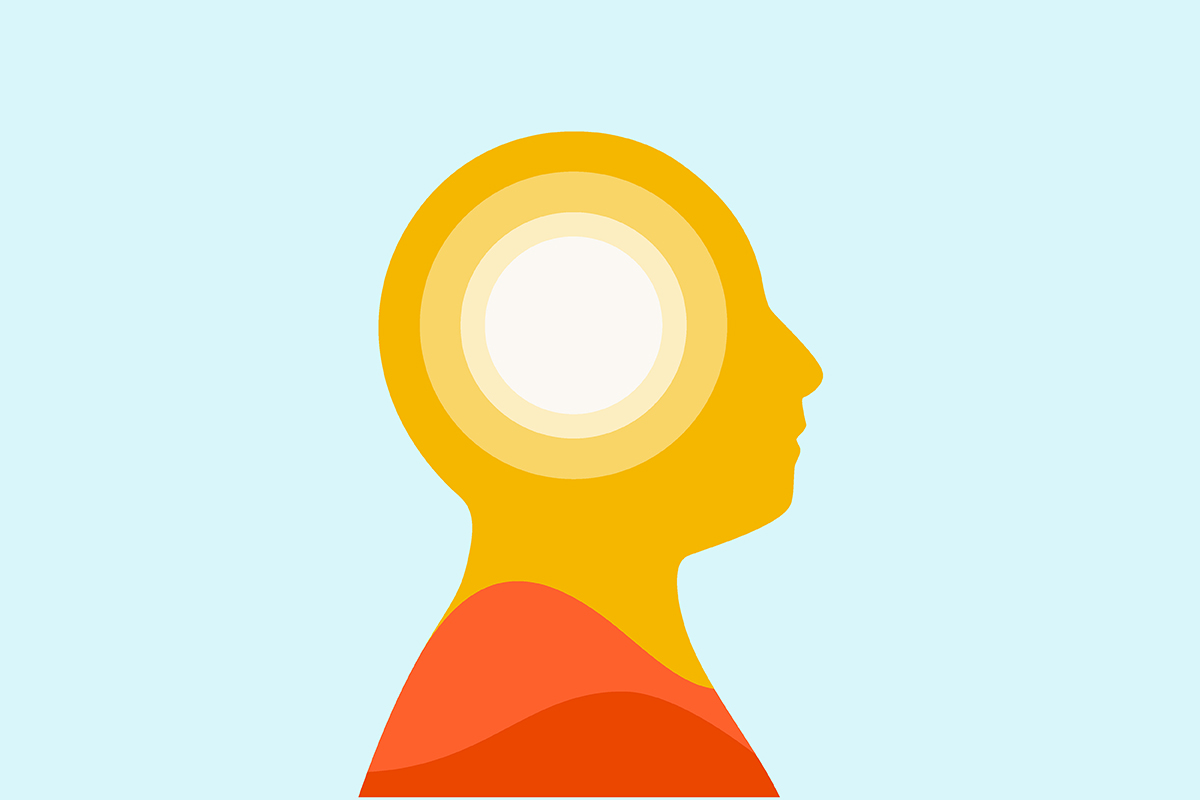
Work with a therapist through one of Refresh Mental Health’s centers, now offering virtual care and services at more than 300 places nationwide.

Meditation is great for your body and your mind. Here’s what to know to get started.
You might feel like you have too much on your plate. Whether it’s your job, relationships, work or health, it may seem like there’s no time to relax. That can cause you to worry and be stressed out. You may even lose sleep over it.
But did you know that you have the power to find calm? And that it’s been right here all along? One of the easiest ways to find that inner calm is through a practice called meditation.
Meditation is a way to make you feel calm and quiet. It helps you train your mind to slow down and relax. And while it may be timed, there is no set limit. So, you can do it for five minutes or an hour or even more. But even just a few minutes can make you feel better.
Here’s what to know and how to get started.

Work with a therapist through one of Refresh Mental Health’s centers, now offering virtual care and services at more than 300 places nationwide.
Let’s start with the big picture. Mindfulness is your ability to focus on what’s happening right now. When you’re being mindful, you’re aware of what’s going on in your body and around you. And you observe these moments without judging yourself.1
Meditation, on the other hand, is a practice that aims to increase your concentration and awareness. You might do it while sitting or lying down in a quiet space.1
The big difference: You don’t have to practice mindfulness in the same way you do meditation. You can include it in whatever you’re doing during the day. That could be walking, running or even eating. You can also be mindful while talking to a friend or a neighbor.1 (You usually don’t talk while you’re meditating.)
Some doctors may even suggest meditation as a way to help cope with stress and other mental health issues. For example, it may be used to help people de-stress who have long-term diseases like cancer or diabetes.2,3
It’s simple to make meditation a part of your daily life, says Bonnie Carpenter, EdD. She’s a psychologist in Philadelphia. That could be as easy as looking out your window and noticing what’s going on for a few minutes. Or, it can be taking time to sit or lie down, close your eyes and focus on your breath. That could be for however long or short you like.
“It doesn’t matter if you do it at the same time, in the same place or the same way each time, as long as you make a space for meditation in your life,” Carpenter says.
You can do it lots of different ways. You can focus on a single word or sentence that makes you feel more relaxed. You can think about a picture or a sound that helps you calm down. Or you can just notice your breath as the air flows in and out of your body.
First, you can learn how to meditate by following three easy steps. Then, learn three ways it can be good for your health.
You might think that meditation is the same as praying. But there’s a difference. When you’re meditating, you’re not trying to connect to a higher power. You’re simply being present.
How do you do that? First, it’s helpful to find a quiet spot to meditate. You can certainly do it seated or lying down. But there isn’t a “right” way to do it. (For example, you can do a walking meditation.) Relax and settle in for a few minutes (or however long is good for you). One of the easiest ways to meditate is to pause and focus on your breath. For this type of meditation try these steps:
“Breath is used as an anchor to come back to the moment, the now,” says Donna Rockwell, PsyD. She’s a psychologist in private practice in New York and Michigan.
Keep going for as long as you like. You can even try a guided meditation. You can find them online or on a smartphone app. There are many to choose from.
You can try to practice meditation daily. That’s the key to getting the most out of it, says Rockwell. It’s all about creating a routine.
But if you don’t have time to meditate daily, that’s OK. Just do it as often as you can. One way to make it a habit is to tie it to something you already do. For example, if you’re alone, you can take five minutes on the couch or at your desk to close your eyes and focus on your breath. Notice your thoughts and let them go. That, too, is meditation.
Your cue can be anything that helps remind you to take a breath, says Carpenter. “It should make you calmer and more focused.”
Get health tips you can trust delivered straight to your inbox. Sign up for our health and wellness newsletter today.
Now that you’ve learned about how to meditate, what can it do for you? It can be good for your health. Here are three ways:
Your brain and central nervous system are in charge of everything you do. Those are the millions of tiny nerve cells that send your body messages. They tell you what you need to do and when you need to do it.
One of your nervous system’s most important tasks? Regulating your fight-or-flight response. That’s your reaction when something scary happens. If a big dog attacks, you can either fight it off or run away. You need your fight-or-flight response to stay safe and out of danger.4
When that happens, your heart rate and blood pressure go way up. Your muscles get tense and ready to move. Your body reacts the same way to emotional stress. If you have an argument with a friend, that response can kick in the same way. And if you’re stressed out for too long, it can lead to health problems.
Constant stress may play a part in risk for high blood pressure, heart attack and stroke.5 Meditation may help slow down your body’s stress response. It uses the part of your nervous system that relaxes you.
“The antidote to stress is to train our minds to return to the present moment,” Rockwell says. That’s what meditation is all about.
Let’s say you’re working on five different tasks at work. Then your boss calls. You might feel a little overwhelmed. That’s where meditation can help.
An important benefit of meditation is the ability to clear and focus your mind, says Carpenter.
When you meditate, you focus on the now. You may think about the past or the future, but you let those thoughts go. And you always return to the now. Focusing on the moment can help you in lots of ways.
For example, it can help you concentrate on the job you’re working on. That in turn can help you do it better. It can also help you listen carefully to your friends and loved ones. That can make your relationships better.
Meditation can do a lot more than just lower stress. According to the National Center for Complementary and Integrative Health, meditation may also:6
Research shows that meditation may help lower your blood pressure. And it may also help ease long-lasting pain and help people cope with eating disorders.7
Bottom line: Meditation can be a fun and easy way to get healthier. And all you need to do is breathe. (Really, that’s it.)
Need support for you or a loved one? Refresh Mental Health centers offer mental health and substance abuse services online and at 300 places nationwide. Find support.
Sources
© 2024 Optum, Inc. All rights reserved. Do not reproduce, transmit or modify any information or content on this website in any form or by any means without the express written permission of Optum.
The information featured in this site is general in nature. The site provides health information designed to complement your personal health management. It does not provide medical advice or health services and is not meant to replace professional advice or imply coverage of specific clinical services or products. The inclusion of links to other web sites does not imply any endorsement of the material on such websites.
Optum does not recommend or endorse any treatment or medications, specific or otherwise. The information provided is for educational purposes only and is not meant to provide medical advice or otherwise replace professional advice. Consult with your clinician, physician or mental health care provider for specific health care needs, treatment or medications. Certain treatments may not be included in your insurance benefits. Check your health plan regarding your coverage of services.
If you or someone you know is in crisis— seek safety and get help right away. If you or someone you know is in immediate danger, call 911 or go to the closest emergency room.
To reach a trained crisis counselor, call the 988 Suicide & Crisis Lifeline (previously known as the National Suicide Prevention Lifeline) at 988 or 1-800-273-TALK (1-800-273-8255). You may also text 988 or chat at 988lifeline.org. The lifeline provides 24/7 free and confidential support.
Stock photo. Posed by model.